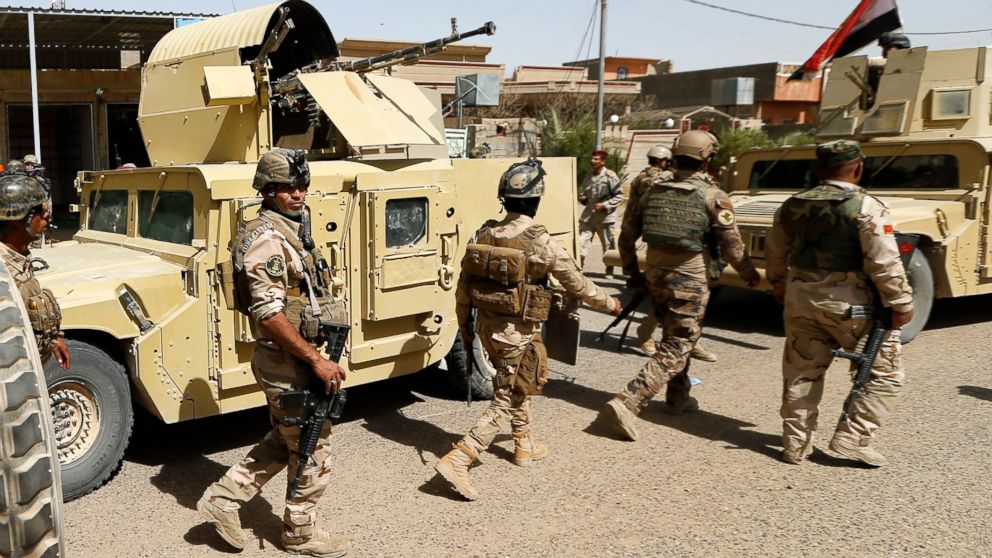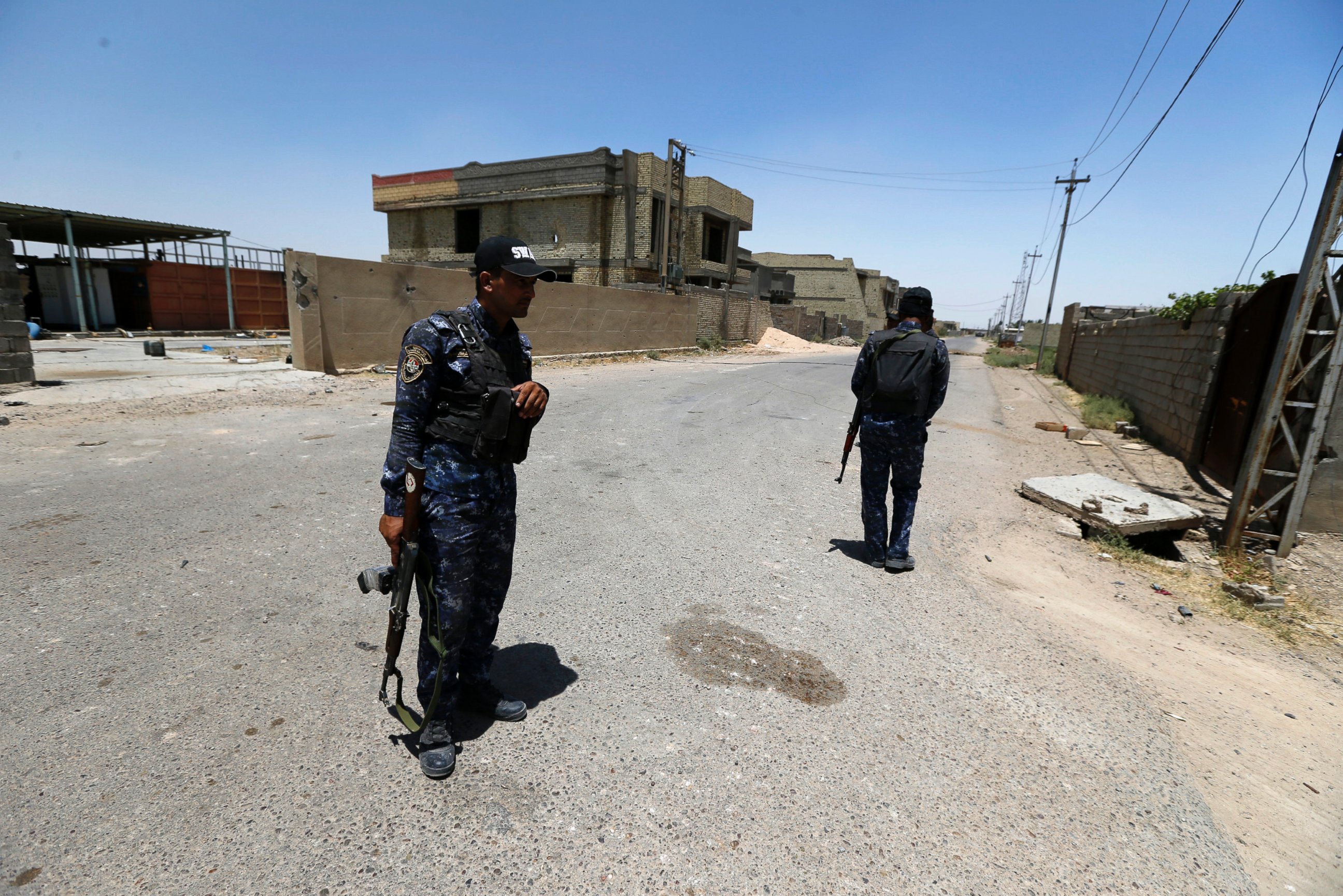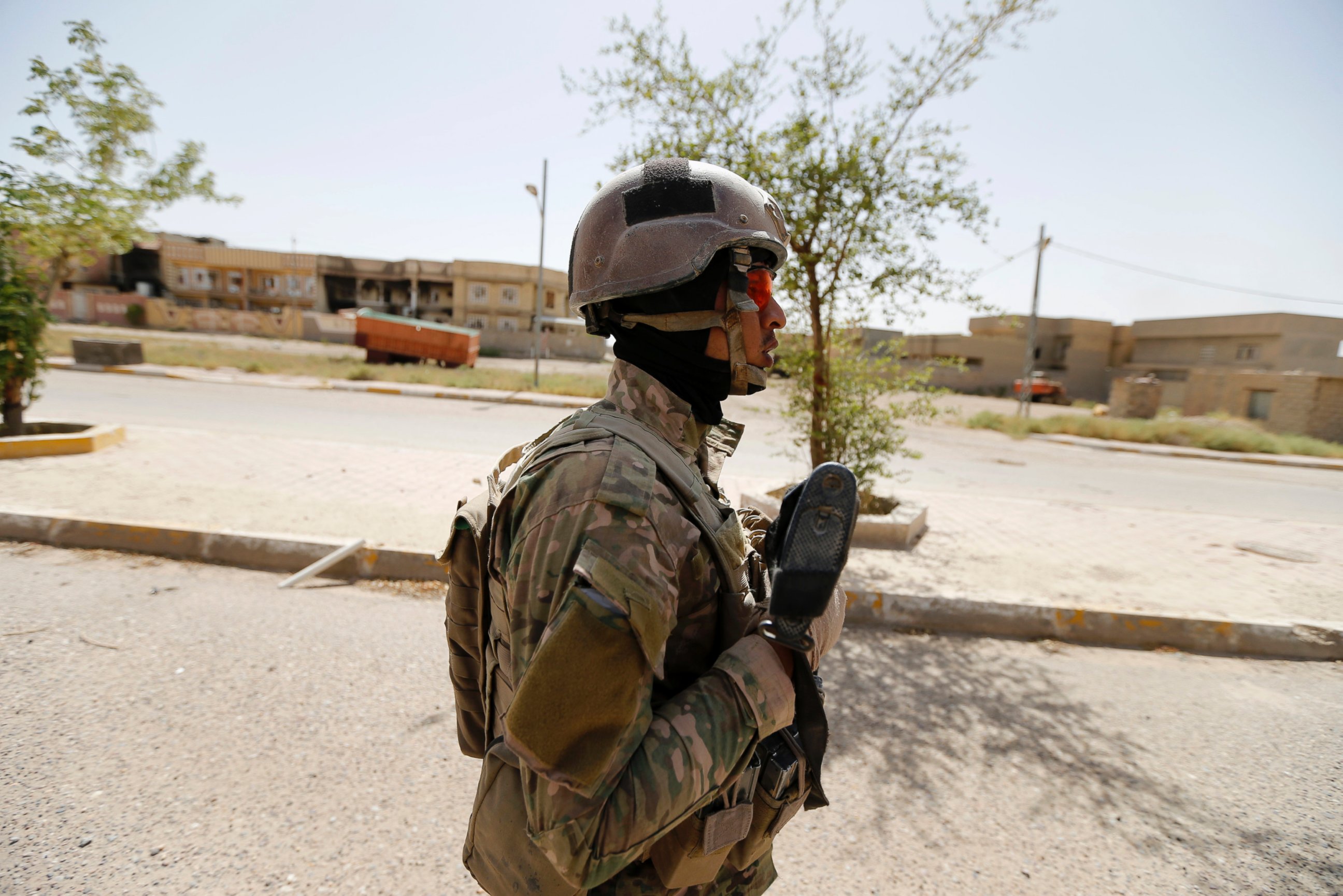Iraqi Troops Push Into Center of Fallujah in Fight Against ISIS
Officials say tough fight remains to clear ISIS from rest of the city.

— -- The Iraqi military has pushed into the heart of the ISIS-held city of Fallujah, but U.S. officials say more tough fighting remains to rid ISIS from the rest of the city.
"The Iraqis announced today that they had seized the Fallujah municipal building in roughly the center of Fallujah," said Colonel Chris Garver, the U.S. military spokesman in Baghdad.
The push into the city has been conducted by forces from Iraq's elite Counterterrorism Service, federal police and military commandos. Garver said their offensive into the center of Fallujah on Friday "was enabled by multiple Coalition strikes to destroy heavy machine guns that were impeding the progress of the advance." In the last seven days, the coalition has conducted 17 airstrikes inside the city.
"They are in control of a portion of the city," Defense Secretary Ash Carter told reporters at the Pentagon today. "I think it's too early to say all of the city." He added, "there’s still a lot of fighting to be done."
The Iraqi military estimates that 20 percent to 25 percent of the city has been cleared of ISIS fighters and is under the control of the Iraqi Security Forces, Garver said.
"There is still a lot of work to be done continuing to clear out fighters and to start clearing the extensive IEDs and booby traps left that are habitually left behind by ISIS," Garver said, referring to improvised explosive devices.
Iraqi Brigadier General Haidar al-Obeidi, a commander of Iraq's special forces, told the Associated Press his troops are now surrounding the nearby central hospital, which ISIS is now using as a command center. He said it was unclear if any of the hospital's patients remain in the building.

On Wednesday, Garver told Pentagon reporters that the Iraqi military was advancing slowly and carefully into the city because of the large number of civilians believed to still be in the city.
The Iraqi offensive to retake Fallujah began three weeks ago mainly because the Iraqi government believed that doing so would reduce the car bombing threat to Baghdad. However, those attacks have continued even as the Iraqi military slowly laid siege to the city.
Earlier this week the Iraqi military gained a foothold in the southern limits of the city earlier after facing intense resistance from ISIS fighters. Garver said seizing a foothold inside the city fit the pattern shown by the Iraqi military in Ramadi and other offensives.
"We've seen the Iraqis like to push towards the center, seize the center and then fight outward," Garver said.

He said he had seen estimates that between 30,000 and 40,000 civilians from the city and surrounding area had left the area in recent days as the fighting increased. The Iraqi military had established a screening process to catch any ISIS fighters who might be trying to blend in with civilians fleeing the city.
Located about 40 miles west of Baghdad, Fallujah was the first Iraqi city to come under the control of ISIS in early 2014. ISIS gained support from the local Sunni population that had grown disaffected by the Shiite-led government in Baghdad. U.S. officials said earlier this week it remained unclear how much support ISIS still had in the city from local Sunnis.




